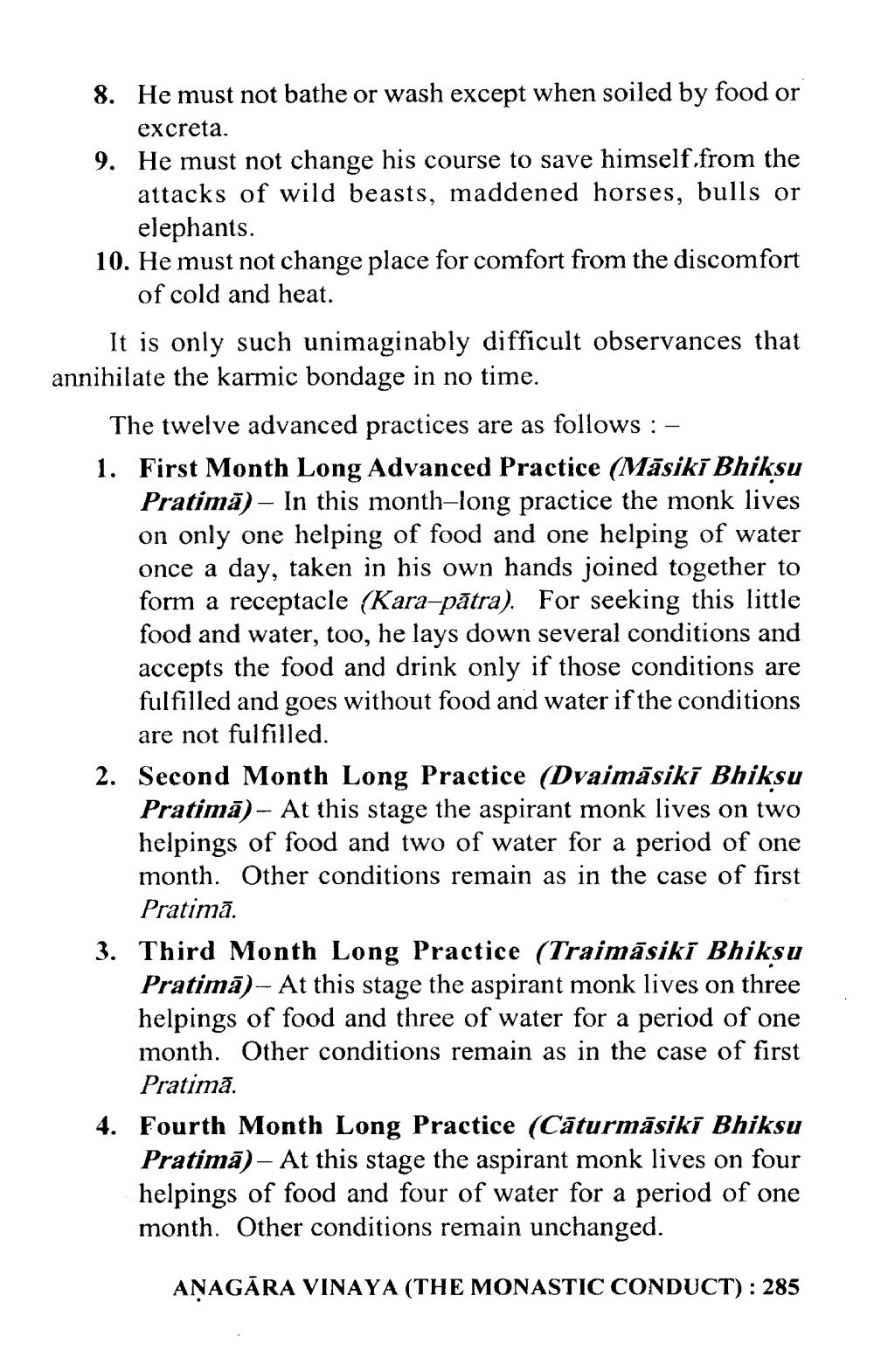________________
8. He must not bathe or wash except when soiled by food or
excreta.
9. He must not change his course to save himself.from the attacks of wild beasts, maddened horses, bulls or elephants.
10. He must not change place for comfort from the discomfort of cold and heat.
It is only such unimaginably difficult observances that annihilate the karmic bondage in no time.
The twelve advanced practices are as follows: —
1. First Month Long Advanced Practice (Māsikī Bhiksu Pratima) - In this month-long practice the monk lives on only one helping of food and one helping of water once a day, taken in his own hands joined together to form a receptacle (Kara-pātra). For seeking this little food and water, too, he lays down several conditions and accepts the food and drink only if those conditions are fulfilled and goes without food and water if the conditions are not fulfilled.
2. Second Month Long Practice (Dvaimāsikī Bhiksu Pratimā) – At this stage the aspirant monk lives on two helpings of food and two of water for a period of one month. Other conditions remain as in the case of first Pratima.
3. Third Month Long Practice (Traimāsikī Bhiksu Pratimā) – At this stage the aspirant monk lives on three helpings of food and three of water for a period of one month. Other conditions remain as in the case of first Pratima.
4. Fourth Month Long Practice (Căturmāsikī Bhiksu Pratimā) – At this stage the aspirant monk lives on four helpings of food and four of water for a period of one month. Other conditions remain unchanged.
AṆAGARA VINAYA (THE MONASTIC CONDUCT): 285




